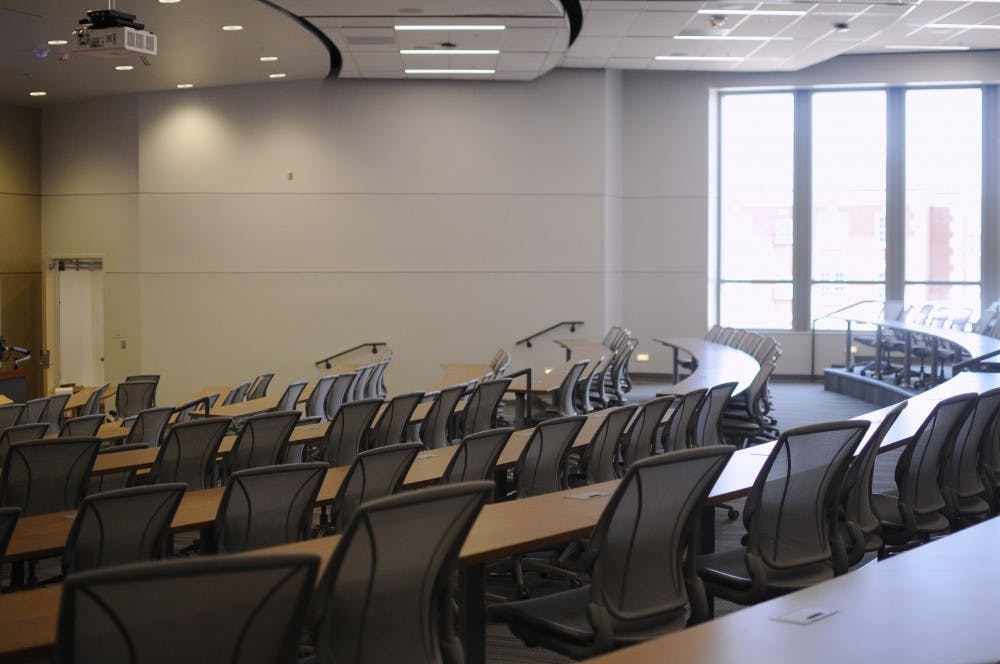The semester is now well underway, and classes are in full effect. The Office of Academic Support is looking to get students to fully take advantage of the resources it offers this semester with its three main programs: Supplemental Instruction, Study Partners and Academic Coaching.
The most popular of these is Supplemental Instruction, which, according to the Office of Academic Support’s website, had a total of 40,934 visits during the 2017-2018 school year. These student-led study sessions help students in well-known challenging courses succeed. Students who participate in SI earn a half-letter grade higher in the course than those who do not, according to the Office of Academic Support.
Even though SI is the most used of all the programs with its impressive number of visits in the past year, Jaime Miller, director of the Office of Academic Support, thinks it could still be more frequently utilized because the average rate of participation is 32 percent.
Participation rates in academic support programs are based on the number of students in the class and the number of those students who come to the provided study sessions twice a week.
“One in three, essentially, of our students in the classroom are coming to SI at least once in that semester,” Miller said. “I would like to see that participation rate come up to 70–75 percent.”
Students have reported their increased success and confidence in classes after working with SI. Miller said the overall response is hugely positive, which has kept the program advancing.
She believes many students do not come to these study sessions as often because they think that they should not face their challenges and that doing so is difficult.
“Students should remember that when they are facing a challenge or a barrier that they are not alone and that other people are here to empathize with that challenge, but also help them overcome that challenge,” Miller said.
She added that it is essential for students to incorporate academic support services campus-wide into their daily habits. This would normalize the experience in asking for help from the Office of Academic Support, Miller said.
To do this, Miller believes it is imperative to get a stronger start at the beginning of the year by creating a plan for academic success through academic coaching, setting up appointments with your adviser and working with your peers in study groups through Supplemental Instruction or Study Partners.
“I think that it is also important to remember that even though you are doing well, you can do better,” Miller said. “And something like Supplemental Instruction can help you gain a deeper understanding of your course concepts, so you perform your absolute best.”
Miller said that she believes it is vital for students to lean into their challenges. She advises students to avoid procrastination, and she wants to remind them academic support resources are always on campus to help students with those problems.
Do you like this story? The Plainsman doesn't accept money from tuition or student fees, and we don't charge a subscription fee. But you can donate to support The Plainsman.





